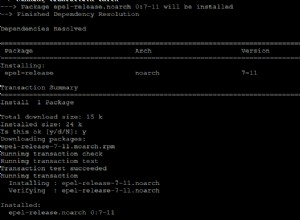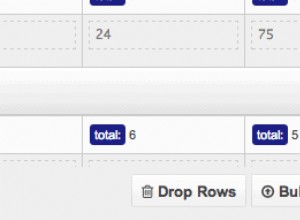Avresti dovuto leggere la risposta correttamente, poiché esisteva già un altro elenco alternativo e una spiegazione del motivo per cui il risultato atteso che desideri da quello che hai utilizzato sarebbe diverso.
Tu invece vuoi questo, che rispetti i possibili multipli "PASS" o "FAIL":
Model.aggregate(
[
{ "$sort": { "executionProject": 1, "runEndTime": 1 } },
{ "$group": {
"_id": "$executionProject",
"suiteList": { "$last": "$suiteList" },
"runEndTime": { "$last": "$runEndTime" }
}},
{ "$unwind": "$suiteList" },
{ "$group": {
"_id": "$_id",
"suite-pass": {
"$sum": {
"$cond": [
{ "$eq": [ "$suiteList.suiteStatus", "PASS" ] },
1,
0
]
}
},
"suite-fail": {
"$sum": {
"$cond": [
{ "$eq": [ "$suiteList.suiteStatus", "FAIL" ] },
1,
0
]
}
},
"runEndTime": {"$first": "$runEndTime"}
}},
{ "$sort": { "runEndTime": 1 }}
],
function(err,result) {
}
);
Che è una sorta di "combinazione" di approcci. Il primo è ottenere "l'ultimo" da runTime come ti aspettavi. Il passo successivo è scomporre l'array e questa volta effettivamente "riassumere" le possibili occorrenze di pass o fail, piuttosto che registrare semplicemente un 1 per pass o fail nell'array, vengono contati i "pass" o "fail" effettivi.
Con risultati:
{
"_id" : "Project1",
"suite-pass" : 0,
"suite-fail" : 1,
"runEndTime" : ISODate("2015-08-19T09:46:31.108Z")
}
{
"_id" : "Project2",
"suite-pass" : 2,
"suite-fail" : 0,
"runEndTime" : ISODate("2015-08-19T11:09:52.537Z")
}
{
"_id" : "Project3",
"suite-pass" : 0,
"suite-fail" : 1,
"runEndTime" : ISODate("2015-08-19T11:18:41.460Z")
}




